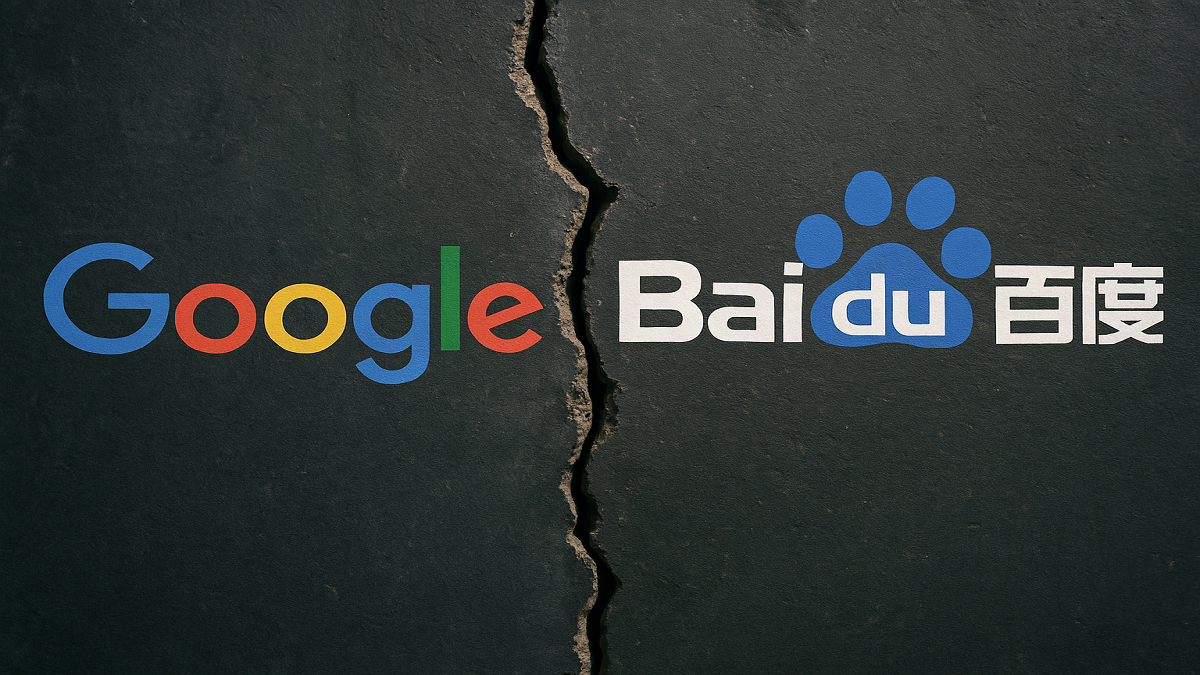As artificial intelligence (AI) rapidly reshapes industries, economies, and global power structures, the rivalry between Google and Baidu symbolizes a larger technological race between the United States and China. These two tech giants are not just search engine leaders in their respective regions; they are also pioneering forces in the AI revolution, investing heavily in research, development, and deployment of cutting-edge AI technologies.
This article delves into a comprehensive comparison between Google and Baidu, examining their AI strategies, research capabilities, core technologies, and global impact in the pursuit of AI supremacy.
1. Origins and Evolution into AI Powerhouses
Google: From Search to AI-First
Founded in 1998, Google evolved from a search engine into a technology conglomerate, operating under the parent company Alphabet Inc.. In 2016, then-CEO Sundar Pichai declared that Google would transition to an AI-first company. This strategic pivot led to the rise of Google AI, and its UK-based subsidiary DeepMind, known for its breakthroughs in deep learning and reinforcement learning.
Today, Google is at the forefront of language models, cloud-based AI tools, healthcare AI, and AI ethics research. Products like Gemini (formerly Bard) and platforms like TensorFlow demonstrate Google’s commitment to both consumer-facing and developer-centric AI.
Baidu: China’s AI Trailblazer
Founded in 2000, Baidu emerged as the dominant search engine in China, but quickly began investing in artificial intelligence as a core strategy by the mid-2010s. With substantial government backing and participation in China’s “Next Generation Artificial Intelligence Development Plan”, Baidu positioned itself as the flagbearer of Chinese AI innovation.
Baidu’s focus spans large language models, autonomous vehicles, speech recognition, and AI chips. The launch of ERNIE Bot, China’s answer to ChatGPT, signaled Baidu’s intent to compete directly with Western AI offerings.
2. Core AI Technologies and Research
Google: Leading with Foundational Models and DeepMind Research
Google has been a pioneer in AI research, with foundational technologies like:
- Transformer architecture, introduced in the 2017 paper “Attention Is All You Need”, now the basis for most large language models (LLMs).
- DeepMind’s AlphaGo, which defeated human champions in the complex game of Go, highlighting the power of reinforcement learning.
- Gemini, Google’s latest multimodal LLM, designed to rival OpenAI’s GPT series.
Additionally, Google’s TensorFlow and JAX frameworks empower developers globally, while its TPUs (Tensor Processing Units) offer specialized hardware acceleration for machine learning tasks.
Baidu: Scaling China’s AI Frontier
Baidu has taken a multi-pronged approach to AI development:
- ERNIE (Enhanced Representation through Knowledge Integration) is Baidu’s flagship LLM family. Unlike Western models that rely purely on data patterns, ERNIE integrates knowledge graphs for deeper understanding.
- Apollo, Baidu’s autonomous driving platform, is among the most advanced in the world, with trials across multiple Chinese cities.
- The Kunlun AI chips, developed in-house, provide Baidu with greater autonomy amid U.S. chip sanctions.
Baidu also actively publishes research and maintains a growing suite of AI-as-a-service tools on its Baidu Brain platform.
3. Applications and Product Ecosystems
Google: AI Across the Ecosystem
Google’s AI is deeply embedded in its entire product line:
- Search: AI powers Google’s search algorithms, providing contextual, intent-based results.
- Gmail and Docs: Smart Compose and auto-generated summaries are powered by language models.
- Google Cloud AI: Offers scalable AI tools for enterprises, including Vertex AI, AutoML, and Vision AI.
- Healthcare: DeepMind’s AI is being used to detect eye diseases, predict patient deterioration, and assist in protein folding research (AlphaFold).
Through platforms like Android, YouTube, and Google Maps, Google ensures billions of users interact with its AI every day.
Baidu: AI Tailored to China’s Ecosystem
Baidu has built an AI ecosystem that aligns with China’s data-rich, government-regulated, and mobile-centric digital landscape:
- ERNIE Bot is integrated into Baidu’s suite of apps, search, and voice assistants.
- Baidu Maps and DuerOS (voice AI) show practical deployments of NLP and computer vision.
- Baidu Cloud AI provides AI services tailored to domestic businesses, especially in manufacturing, finance, and education.
- In smart cities, Baidu’s AI assists in traffic optimization, facial recognition, and public security.
4. Strategic Vision and Government Alignment
Google: Ethical AI and Open Research
Operating within a Western regulatory environment, Google places emphasis on AI ethics, transparency, and open research. It has established principles to guide responsible AI development and has partnered with international institutions to study AI safety, bias, and misuse.
However, Google also faces scrutiny from both the public and regulators regarding its data practices, labor policies, and AI model accountability.
Baidu: Aligned with China’s National Strategy
Baidu benefits from tight integration with Beijing’s strategic goals, particularly under the “AI 2030” vision, which aims to make China the global leader in AI. As a result:
- It receives state funding, policy support, and regulatory protection.
- Baidu plays a crucial role in AI-driven governance, including surveillance infrastructure and smart city initiatives.
This alignment accelerates deployment, though it raises concerns over privacy, data rights, and censorship in international markets.
5. Global Reach and Market Challenges
Google: A Global AI Power
Google’s AI tools are widely used in North America, Europe, Southeast Asia, and Latin America. Its developer tools, cloud services, and open-source projects make it an indispensable part of the global AI ecosystem.
Challenges for Google include:
- Rising regulatory barriers (e.g., EU AI Act)
- Competition from OpenAI, Microsoft, and Meta
- The geopolitical fragmentation of technology standards
Baidu: Strong at Home, Limited Abroad
While Baidu dominates AI in China, its international reach is limited due to:
- Language and cultural barriers
- Concerns over data security and surveillance
- U.S. sanctions restricting access to high-end AI chips
However, Baidu is expanding cautiously into Southeast Asia, Africa, and Central Asia, often in cooperation with Belt and Road Initiative partners.



 Vast Space Signs Deal with NASA for Priv...
Vast Space Signs Deal with NASA for Priv...
 17 Year Old Aditya Pandya Becomes India’...
17 Year Old Aditya Pandya Becomes India’...
 New Dragonfly Species Lyriothemis kerale...
New Dragonfly Species Lyriothemis kerale...








